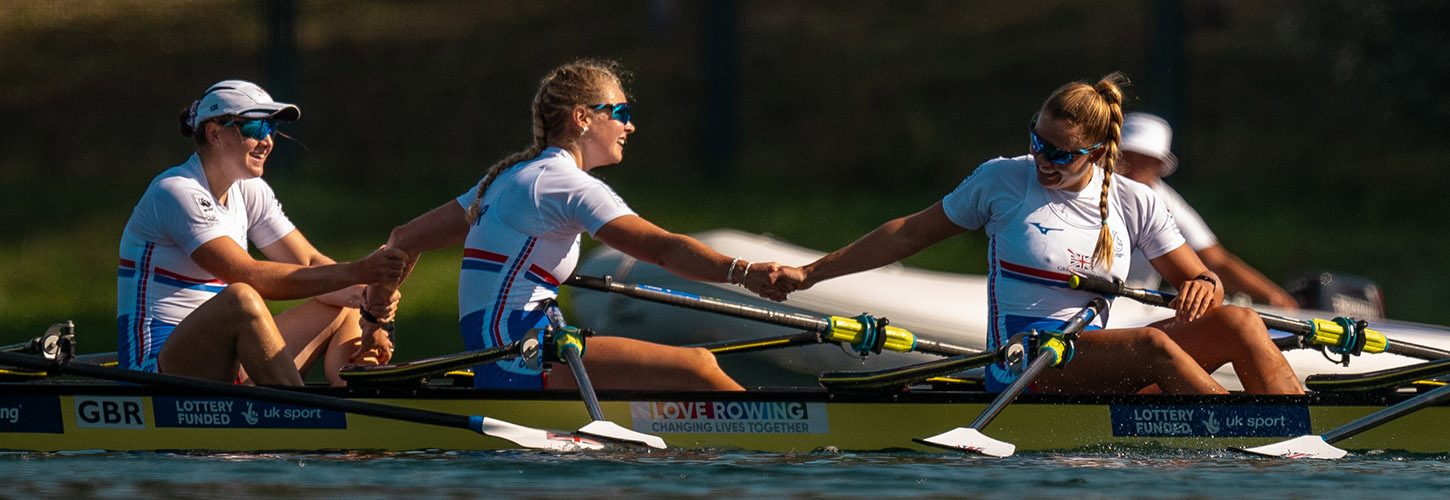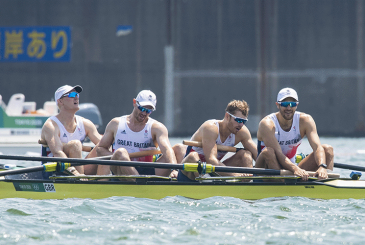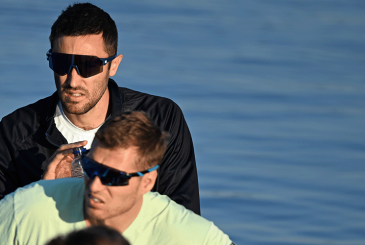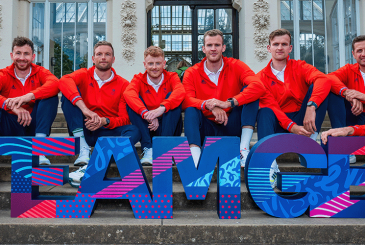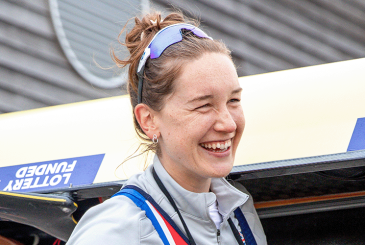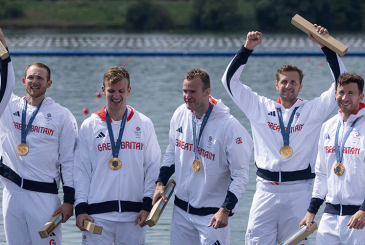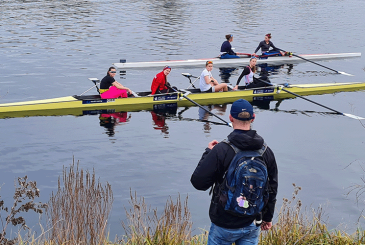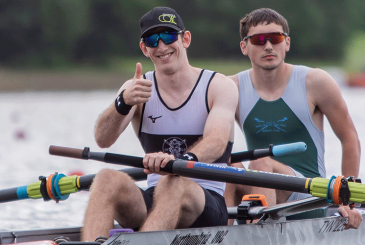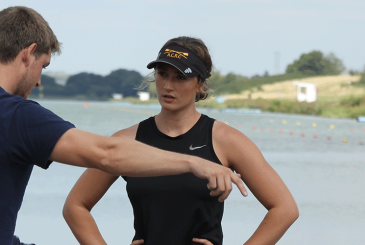Crew bonding is a concept that’s often mentioned, but is hard to define. Martin Cross explores what it looks like, whether it helps you go faster, and how to bond as a crew.
“As one! As one!” Cox Bobby Moch’s exhortation to his Washington Crew during the 1936 Olympic eights final is a key feature of George Clooney’s recently-released film of The Boys in the Boat. It’s meant to show the deep bond that existed between those nine men, which drew them on to an unlikely victory in Berlin.
Put simply, members of a crew who have a strong bond are united in a common goal. That goal could be anything from keeping the boat balanced this outing, or it could be winning at National Schools Regatta in six months’ time or beyond.
Does a crew have to ‘get on together’ to go fast?
The answer to this question is no. Crew bonding is not the same thing as friendship and so there are plenty of examples of crews who were not necessarily ‘best mates’ but went fast. Steve Redgrave and Andy Holmes – Olympic Champions in the coxless pair in 1988 – famously did not see eye to eye. And according to South African 2012 Olympic Champion James Thompson, his team mates in the long-term pair – Ramon Di Clemente and Donovan Cech, who won bronze at the Olympic Games in Athens in 2004 – “hardly spoke to each other.”
But that said, there are plenty of crews who have bonded effectively and have gone faster as a result. According to Jess Eddie, the ‘#sassy’ British women’s eight who took Olympic silver in Rio in 2016 developed that sense of identity during training to solidify their relationship. Not everyone in the crew liked the term ‘sassy’, she added – they were a real mix of personalities – but they went along with it for the sake of crew unity. Cox of that crew, Zoe De Toledo, explained, “We talked a lot about having open and honest conversations which really helped us bond, even when the conversations were difficult.”
How to bond junior crews
Sir Matthew Pinsent remembers it was the simple act of a J14 coach allowing his squad to pick what exercises went into a circuit that had a lasting impact on him and his squad’s cohesion. “Some chose rest, some what they were good at, some what they hated but knew did them good. That was 40 years ago – and I still remember it. Up till then no coach had ever asked me to choose anything,” said Pinsent.
For Bobby Thatcher, the coach of the St Paul’s first eight, bonding comes from alumni coming back to visit the club. “We’ve got so many guys who’ve been through the club and are now rowing at a high level. We also have all the old stats so the boys can see where people like current GB Rowing Team athletes Freddie Davison and Dave Ambler were when they were at school and realise it’s attainable. Dave and Freddie pop by when their schedules allow, and it creates a good bond in the squad,” explained Thatcher.
Everybody had to write one positive thing about that person and then pass it on.
Chris Lee, J16 coach at Hampton School, used pen and paper for a bonding session. “I had each crew member write their name on the top of a piece of paper and pass it to their left. Everybody had to write one positive thing about that person and then pass it on. So, when it got back to the start, there were nine positive comments. We debriefed it and it worked really well.”
Whole-squad bonding
2024 Cambridge University BC Women’s President Jenna Armstrong understands the importance for bonding for her whole squad. “For those eight women who don’t make the cut for trial eights, we run a race between them and the lightweights, so they feel part of something. We also organise social events, like a meal out after key testing points such as trial eights or our 5k test, which can really bring the group together.”
Bake off!
Camilla Hadland-Horrocks, now a World Rowing commentator, also found that baking was important when she was a student rower at Durham. “I remember baking on training camp with our women’s eight one year in the tiny kitchen at our accommodation. With limited equipment we needed to do a fair amount of problem solving too, which made it a bit of a laugh and also allowed us to all chip in while still chatting to one another (something that watching a film doesn’t allow for, for example),” she explained.
Crew bonding tips from Olympic champions
Triple Olympic medallist (in 1992, 1996 and 2012) Greg Searle remembers his 2010 GB men’s eight as a crew that really bonded well. They developed four key words: long, connected, relaxed and hard. These were their guide – not only for how they would row but for how they would act with each other off the water. “John West, our coach, let us hold each other to account for the way we followed these words,” explained Searle.
Create a team code of conduct and hold each other accountable
During the race, the crew’s cox, Phelan Hill used these key words at 250m, 750m, 1250m and 1750m. They won the silver medal less than a second behind the then-dominant Germans. Coxes can really help a crew to bond by using words and phrases and referencing shared experiences in training as well as racing. The aim is always to draw the different personalities of a crew together – “As one! As one!”
There are reasons beyond winning to invest in crew bonding
Greg’s brother Jonny, who now coaches at Twickenham RC, explained that one of the keys to crew bonding is “making space to express your vulnerability and values in a safe space”. Like his brother, he too thought that it was important to, create a team code of conduct and hold each other accountable. Crucially, Searle added, you must do this with kindness and compassion.
Crew bonding beyond rowing
The ties formed by the Huskies over that 1936 season lasted for life. As cox Moch wrote in 2004, “We truly for years felt like a band of brothers. Each of us felt that is the best benefit we received from being in the University of Washington 1936 crew.” So, it’s important to recognise that although bonding can bring your crew to a better result there are reasons beyond winning to invest in crew bonding.
Photo: Ben Tufnell/British Rowing


